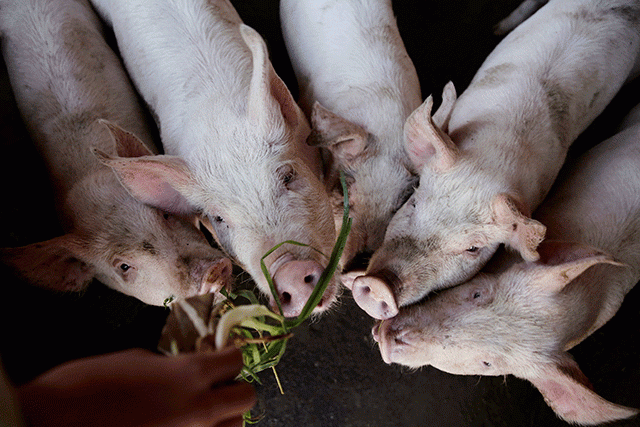
SHANGHAI — A new flu virus found in Chinese pigs has become more infectious to humans and needs to be watched closely in case it becomes a potential “pandemic virus”, a study said, although experts said there is no imminent threat.
A team of Chinese researchers looked at influenza viruses found in pigs from 2011 to 2018 and found a “G4” strain of H1N1 that has “all the essential hallmarks of a candidate pandemic virus”, according to the paper, published by the U.S. journal, Proceedings of the National Academy of Sciences (PNAS).
Pig farm workers also showed elevated levels of the virus in their blood, the authors said, adding that “close monitoring in human populations, especially the workers in the swine industry, should be urgently implemented”.
The study highlights the risks of viruses crossing the species barrier into humans, especially in densely populated regions in China, where millions live close to farms, breeding facilities, slaughterhouses and wet markets.
The current coronavirus sweeping the world is believed to have originated in horseshoe bats in southwest China and could have spread to humans via a seafood market in the central city of Wuhan, where the virus was first identified.
The World Health Organization (WHO) will read the Chinese study carefully, spokesman Christian Lindmeier told a Geneva briefing on Tuesday, saying it was important to collaborate on findings and keep tabs on animal populations.
“It also highlights we cannot let our guard down on influenza and need to be vigilant and continue surveillance even in the coronavirus pandemic,” he added.
Chinese Foreign Ministry spokesman Zhao Lijian told a daily news conference on Tuesday that China was closely following developments. “We will take all necessary measures to prevent the spread and outbreak of any virus,” he said.
The study said pigs were considered important “mixing vessels” for the generation of pandemic influenza viruses and called for “systematic surveillance” of the problem.
China took action against an outbreak of avian H1N1 in 2009, restricting incoming flights from affected countries and putting tens of thousands of people into quarantine.
The new virus identified in the study is a recombination of the 2009 H1N1 variant and a once prevalent strain found in pigs.
But while it is capable of infecting humans, there is no imminent risk of a new pandemic, said Carl Bergstrom, a biologist at the University of Washington.
“There’s no evidence that G4 is circulating in humans, despite five years of extensive exposure,” he said on Twitter. “That’s the key context to keep in mind.”
More than 10.3 million people have been reported to be infected by the novel coronavirus globally and 504,269 have died, according to a Reuters tally. —Reporting by David Stanway; additional reporting by Cate Cadell in Beijing and Emma Farge in Geneva; editing by Richard Pullin and Nick Macfie









